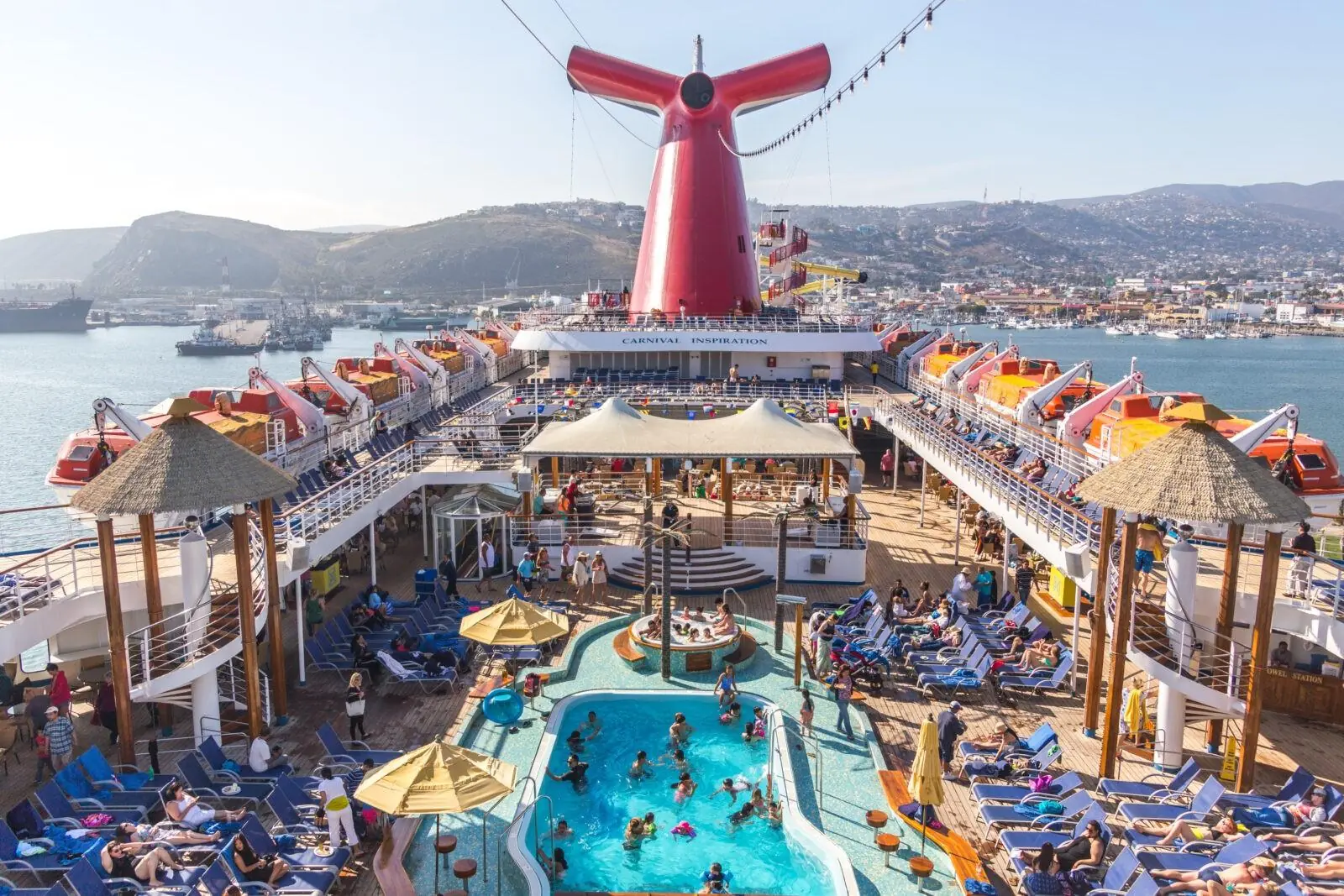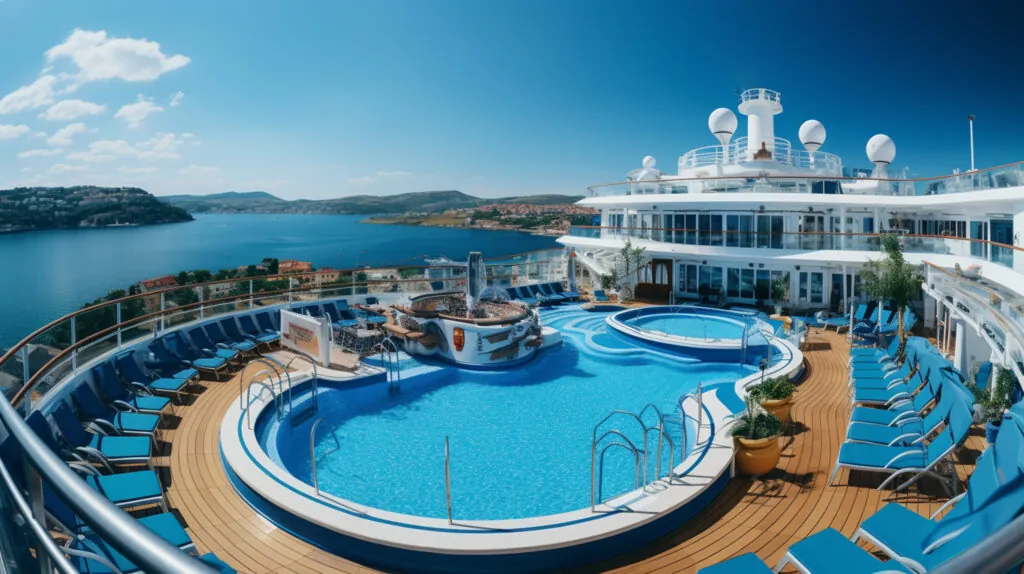If you have ever booked a Carnival Cruise and noticed a scheduled stop in Mexico, Canada, or the Bahamas, you may have wondered why these stops are necessary. Are they just for sightseeing, or is there a legal reason behind them? The truth is that these foreign stops are not always about giving passengers a new destination to explore; instead, they are often a legal requirement imposed by U.S. maritime laws.
The Jones Act and the Passenger Vessel Services Act (PVSA) are two significant laws that restrict how foreign-flagged cruise ships operate within U.S. waters. These laws were enacted long before the modern cruise industry existed, but they still dictate how companies like Carnival, Royal Caribbean, and Norwegian Cruise Line must plan their itineraries.
Understanding these laws can help passengers better plan their cruises, avoid confusion about unexpected foreign stops, and even explore alternatives if they prefer a U.S.-only cruise experience. In this guide, we will break down the Jones Act and PVSA, explain how they affect Carnival Cruise itineraries, and discuss potential alternatives for travelers who want to sail within the United States without making an international stop.
Understanding the Jones Act & Passenger Vessel Services Act (PVSA)
What is the Jones Act?
The Jones Act, formally part of the Merchant Marine Act of 1920, was created to support American maritime industries by requiring that goods transported between two U.S. ports must be carried on ships that are built, owned, and primarily crewed by Americans.
While the Jones Act primarily applies to cargo ships, it indirectly affects the cruise industry. Since most large cruise ships are built in foreign countries and registered under foreign flags,
they do not meet the requirements of the Jones Act and cannot legally transport passengers between U.S. ports without additional restrictions.
The law was originally passed to ensure that the U.S. had a strong commercial shipping fleet that could be relied upon during wartime or national emergencies. However, in today’s global economy, many companies—including those in the cruise industry—have chosen to register their ships under foreign flags to reduce operational costs.
What is the Passenger Vessel Services Act (PVSA)?
The Passenger Vessel Services Act (PVSA) of 1886 directly regulates passenger ships instead of cargo ships. This law prevents foreign-flagged vessels from transporting passengers between two U.S. ports without stopping at a foreign port first.
For example, if a foreign-flagged cruise ship wanted to sail from Los Angeles to Honolulu without stopping at a foreign port, it would be in violation of the PVSA and subject to heavy fines. To comply with this law, many cruise lines add a short stop in Ensenada, Mexico before returning to the U.S.
The PVSA was designed to protect American passenger vessel operators by ensuring that foreign cruise lines do not dominate the market. However, in today’s reality, the law often creates logistical challenges for modern cruise companies and passengers.
How Do the Jones Act and PVSA Differ?
Although both laws regulate maritime operations, they serve different purposes:
- The Jones Act focuses on cargo transportation, requiring that U.S.-built and U.S.-operated ships be used for domestic shipping.
- The PVSA applies specifically to passenger vessels, requiring foreign-flagged cruise ships to include a foreign stop in their itineraries.
Since most large cruise ships are not U.S.-built or flagged, they fall under the restrictions of the PVSA, forcing them to include foreign stops in their schedules to avoid violating U.S. law.
How These Laws Affect Carnival Cruise Line
Why Are Carnival Cruises Registered Under Foreign Flags?
If you look at the registration of most major cruise ships, you will notice they are flagged in countries like:
- Panama
- Bahamas
- Malta
- Bermuda
- Liberia
Carnival Cruise Line, along with Royal Caribbean and Norwegian, registers its ships in foreign countries instead of the U.S. because doing so provides significant financial and operational advantages. Some of the key reasons include:
- Lower labor costs: U.S. labor laws do not apply to foreign-flagged ships, allowing companies to hire international workers at lower wages.
- Reduced taxes and regulation: Foreign registration means cruise companies avoid certain U.S. taxes and compliance requirements.
Flexibility in operations: Cruise companies can hire multinational crews and operate under more lenient safety and labor regulations.
However, since Carnival’s ships are not U.S.-flagged, they must follow PVSA requirements, meaning they cannot sail directly between two U.S. ports without stopping at a foreign destination.
How Do These Laws Impact Cruise Itineraries?
To comply with the PVSA, Carnival and other cruise lines must schedule at least one foreign stop in itineraries that begin and end in U.S. cities. Some common examples include:
- Alaska Cruises from Seattle → Must stop in Victoria, Canada before returning to the U.S.
- Hawaiian Cruises from California → Must stop in Ensenada, Mexico before arriving in Hawaii.
- East Coast Cruises from New York or Boston → Often stop in Bermuda or Canada.
- Panama Canal Cruises from Florida to California → Must include a Caribbean or South American stop.
These foreign stops are often very brief—sometimes just a few hours—because their main purpose is legal compliance, not necessarily passenger enjoyment.
Why Do Carnival Cruises Stop at Foreign Ports?
Avoiding Heavy Fines
If a foreign-flagged cruise ship violates the PVSA, the U.S. government can impose a fine of $798 per passenger.
This means that a single cruise ship carrying 3,000 passengers could face a $2.4 million fine if it sails between two U.S. cities without stopping at a foreign port.
Common Foreign Ports Used for Compliance
To satisfy PVSA requirements while minimizing disruption to cruise schedules, cruise lines carefully select nearby foreign ports for quick stops. Some of the most common compliance ports include:
- Victoria, Canada – Used for Alaska cruises departing from Seattle.
- Ensenada, Mexico – Used for Hawaii cruises departing from California.
- Bermuda – Used for East Coast cruises departing from New York or Boston.
- Nassau, Bahamas – Used for Florida-based cruises.
These stops are often short layovers—just long enough to satisfy the legal requirement—before returning to the U.S.
Can Carnival Cruises Sail Between U.S. Ports Without a Foreign Stop?
In general, no, unless they meet one of the following exceptions:
- Booking a U.S.-Flagged Cruise
There are a few American-owned and flagged cruise operators that do not have to stop at foreign ports. Some options include:
- American Cruise Lines, which operates river and coastal cruises in the U.S.
- UnCruise Adventures, which offers small-ship Hawaii and Alaska cruises.
- Choosing a Repositioning Cruise
Certain one-way cruises that start or end in a foreign country can bypass PVSA restrictions. Examples include:
- Los Angeles to Vancouver (Canada)
- Miami to Europe transatlantic cruises
- U.S. Government Exemptions
On rare occasions, the U.S. government grants special exemptions from the PVSA, but these are extremely limited.
Frequently Asked Questions (FAQs)
What is the Jones Act, and does it apply to cruises?
The Jones Act, part of the Merchant Marine Act of 1920, primarily applies to cargo ships and requires that all goods transported between U.S. ports be carried on U.S.-built, U.S.-owned, and U.S.-crewed ships. While the law does not directly regulate passenger ships, it influences how the cruise industry operates by making it financially impractical for large cruise lines to register under the U.S. flag. As a result, most cruise lines register their ships in foreign countries, which then subjects them to the rules of the Passenger Vessel Services Act (PVSA).
What is the Passenger Vessel Services Act (PVSA), and why does it affect my cruise?
The Passenger Vessel Services Act (PVSA) is a U.S. law enacted in 1886 that prohibits foreign-flagged ships from transporting passengers between two U.S. ports without making a stop at a foreign port first. This means that if a Carnival Cruise departs from a U.S. city like Los Angeles and wants to sail to Hawaii, it must make a stop in a foreign country, such as Ensenada, Mexico, to comply with the law. Failure to follow the PVSA can result in hefty fines for cruise lines, which is why you’ll notice seemingly unnecessary stops on many cruise itineraries.
Why are most cruise ships registered in foreign countries?
Most major cruise lines, including Carnival, register their ships in countries like Panama, the Bahamas, and Malta to take advantage of lower taxes, reduced labor costs, and more flexible maritime regulations. This is called “flags of convenience” and allows cruise companies to operate more profitably than if they were registered under the U.S. flag. However, this also means they must follow PVSA restrictions, requiring a foreign stop on U.S.-based itineraries.
Why do Carnival Cruises have to stop at a foreign port before returning to the U.S.?
Carnival and other cruise lines stop at foreign ports due to the PVSA. If a foreign-flagged cruise ship sails between two U.S. ports without stopping in another country, it is subject to a fine of $798 per passenger. To avoid these fines, cruise lines strategically include brief foreign stops. For example, a Seattle-to-Alaska cruise must stop in Victoria, Canada, and a California-to-Hawaii cruise must include a stop in Mexico before returning to the U.S.
Can I take a direct Carnival Cruise between two U.S. cities?
No, unless the ship is U.S.-built, U.S.-flagged, and U.S.-crewed, or unless it meets specific exemptions. This is why you won’t find a direct cruise from Los Angeles to San Francisco or Miami to New York without a foreign stop. The only cruise lines exempt from this rule are small, U.S.-registered companies like American Cruise Lines, which operate river and coastal cruises that do not require a foreign stop.
Contact The Cruise Injury Law Firm Today
The Jones Act and PVSA create unique challenges for Carnival and other cruise lines, making foreign stops mandatory for most U.S.-based itineraries. While these laws protect U.S. maritime industries, they also limit travel options for passengers.
If you are concerned about how these laws impact your cruise, contact The Cruise Injury Law Firm today for legal guidance.



